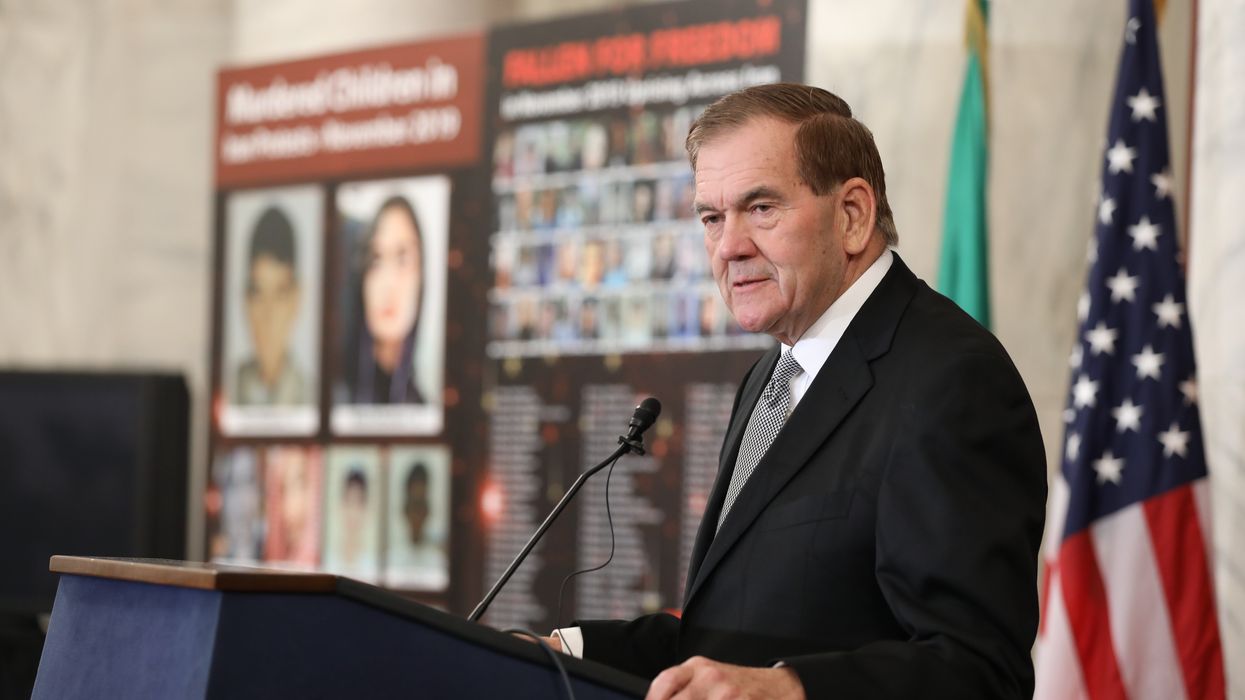The Democrats begin what is sure to be a novel-looking national political convention on Monday. Next week, the Republicans will return the favor. But for millions of Americans, political persuasion has already taken a back seat to the imperative of ensuring that our decisions will actually matter.
If we want a presidential election this year where all voters get to cast their ballots — and every last ballot gets counted — we need a focused and high-profile communications campaign. Quickly.
While voter suppression and ballot chicanery are far from new concepts in our elections, the difference in 2020 is that an American president has openly announced he is trying to cheat and is using the power of the federal government to do so. On national TV and social media, Donald Trump has touted his strategy to defund and disrupt the Postal Service to steal the election.
The second part of Trump's strategy is to consistently declare the election is "going to be a mess" and "fraudulent" and "the most rigged in American history." Trump repeats these mantras again and again as a conditioning mechanism. He drills them into Americans' heads to prime us for his next phase, which begins on Election Day. If Nov. 3 doesn't go his way, Trump will take his claims and actions to a whole new level.
It's an intentional communications strategy. It's right in his wheelhouse. And it's the kind of thing that works.
In fact, a Washington Post/ABC poll last month revealed that 49 percent of Americans now believe that mail-in ballots are susceptible to significant fraud.
As the president has been doing this, commentators who support a fair and accurate election have been trying to respond through countless social media posts and hourly TV segments.
But when all these righteous pronouncements get made in such a dispersed fashion, they don't have nearly the collective power required to effectively dispute all the president's garbage and misfeasance.
Theodore Roosevelt first described the powerful platform of the presidency as "the bully pulpit" for a reason. Historian Doris Kearns Goodwin explained itin her biography of the 26th president, which she subtitled "The Bully Pulpit":
"What he meant was that the president has an unparalleled platform to educate the country and to have moral fervor delivered to the country so that the people themselves will become extraordinarily interested in certain programs."
"Educate the country," or miseducate the country. In Trump's playbook, there's zero difference, as long as the tactics are aligned with the goal. And he leverages the messaging power of the Oval Office as well as any president in history.
The stakes in this election are sky high. And the power and reach of the bully pulpit — especially the one occupied by Trump — is second to none. So if you're going to push back against that massive and focused sound, you'd better maximize the impact of your message. Doing so at this moment in time requires two big steps:
First, one person must be chosen to be the singular voice on this issue. Election Day is in 11 weeks. As soon as possible, there must be one high-profile, designated spokesperson who is laser-focused on delivering messaging that advocates for ensuring a fully fair election.
This spokesperson would ideally be someone who has a well-established reputation for integrity and has a proven track record as an excellent live communicator.
Second, a nonpartisan and nationwide coalition must be launched, not only to work on the ground toward the goal of a fair election but also to serve as the ballast behind the public voice representing this initiative.
Over the past few months, I have not seen or heard one consistent public voice on this predicament. So in recent days I reached out to a few veteran strategists and asked them two questions: Doesn't our country need this? Does anything like this exist?
The answers kept coming back "yes" to the first and "no" or "I don't know" to the second. Each time, my head felt like it was inching closer and closer to spontaneous combustion.
Then I had the talk I'd been hoping for.
It was with Nick Penniman, the founder and CEO of Issue One, an ethics and campaign finance reform organization chock full of former officeholders from both sides of the aisle. (He and I started working together three years ago designing a nonpartisan reform news and opinion website — which has now become The Fulcrum. Issue One owns it but has no journalistic control.)
Before I got a paragraph of my pitch out of my mouth, Penniman told me he agreed — and that Issue One and another bipartisan group formed this spring, VoteSafe, are "mobilizing a bipartisan communications campaign to push back on attempts to discredit the vote and ensure a peaceful transition of power."
Boom!
Issue One has a bipartisan "ReFormers Caucus" of more than 200 former members of Congress, governors and administration officials. I asked if that caucus might be involved. He said it was possible. Then I noted that Republican Tom Ridge, who was the first secretary of Homeland Security after six years as governor of Pennsylvania, is one of the most prominent leaders at both VoteSafe and the ReFormers Caucus. I asked if Ridge might become more visible soon. He said it was possible.
Finally — a reason to exhale.
There is no time to waste. But the good news is that a movement is afoot and a plan is near completion. Be on the lookout for more information on real ways you can support this effort of ensuring a fair and accurate election on Nov 3.
Every last ballot must be counted. It is the backbone of our entire system.




















